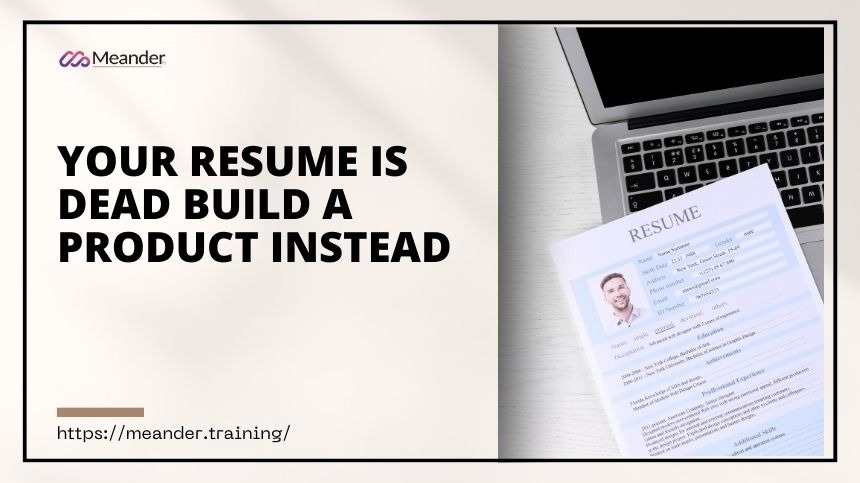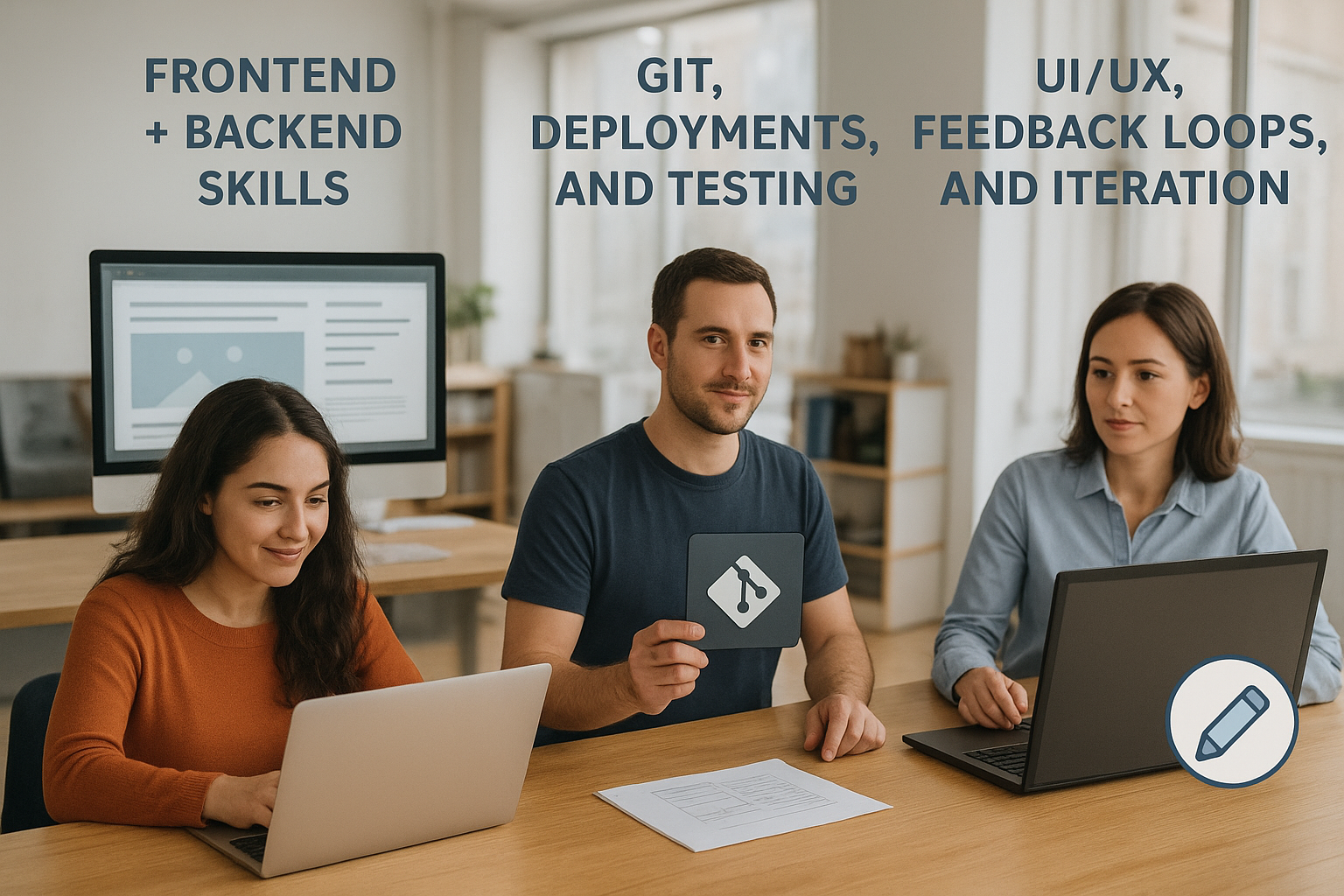There are no items in your cart
Add More
Add More
| Item Details | Price | ||
|---|---|---|---|
Proof of Work | Product Thinking | Hire-Ready Skills | Thu Jun 26, 2025

A product says: “Here’s a dashboard I built using React, Tailwind, and Firebase—with real users.” 🎯 It’s the difference between telling and showing.

“Hey, I built this product that solves X. Here’s the live demo and GitHub. Would love your feedback.” 🎯 Hiring managers notice builders.
Final Thought In the age of AI and automation, building a product is the boldest signal you can send.It says you don’t just want a job—you’re already solving problems. So skip the resume for now.
Build something instead.

Meander Training
A California-based travel writer, lover of food, oceans, and nature.
Not useless, but less powerful. A resume lists claims; a product proves skills. Employers value real examples over words. Building shows initiative, problem-solving, and execution. Keep a resume for formality, but remember—it’s your projects that truly demonstrate capability and grab attention in today’s job market.
No. Small projects work too. A simple website, tool, or weekend MVP can showcase your skills. Employers care about seeing real, working products—not scale. What matters is shipping something tangible, proving you can turn ideas into results, even if it’s small and imperfect.
Building teaches practical skills tutorials can’t. You’ll handle frontend, backend, Git, deployment, debugging, UI/UX, and user feedback. Each step mirrors real-world development. The process builds confidence and problem-solving ability. Unlike passive learning, creating a product forces you to apply knowledge and adapt, preparing you for real work.
Skip generic resumes. Share a demo link or GitHub repo. Say, “Here’s what I built to solve X.” This sparks curiosity and shows initiative. Employers value proof over promises. A product makes conversations about your work, not your job hunt—positioning you as a builder, not just an applicant.
That’s still a success. The experience of designing, coding, debugging, and testing builds skills. Even “failed” projects prove persistence, creativity, and problem-solving. Employers admire candidates who experiment and ship real work. Users aren’t the only goal—the process itself strengthens your abilities far more than endless tutorials or theory.